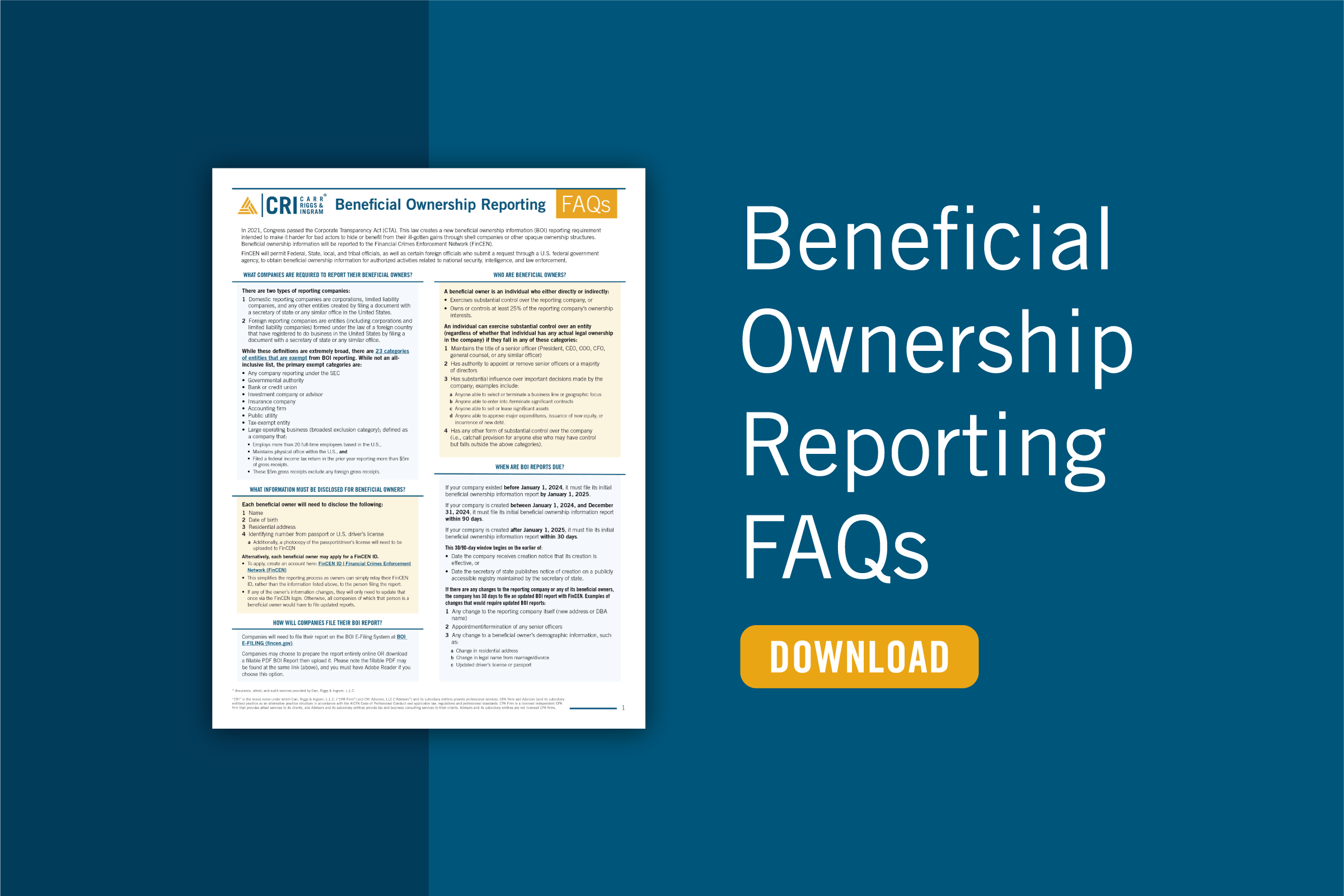Questions About the Employee Retention Credit? We’ve Got Answers.
- Contributor
- Ann Marie Sale
Aug 1, 2021
Originally part of the Coronavirus Aid, Relief, and Economic Security (CARES) Act, the Employee Retention Credit (ERC) is one important way in which the federal government is helping businesses affected by the pandemic. The ERC provides refundable payroll tax credits to qualifying businesses as part of an effort to incentivize businesses to keep their workers on the job. Although the credits applied to 2020 and 2021, the credits can be claimed on amended payroll tax returns as long as the statute of limitations remains open, which is three years from the date of filing.
Initially, the ERC offered refundable payroll tax credits related to wages paid from March 12, 2020, to December 31, 2020. The Consolidated Appropriations Act (CAA) extended the ERC through June 30, 2020, and the program’s timeline was extended again through December 31, 2021, as part of a provision of the American Rescue Plan Act (ARPA).
Multiple notices released by the Internal Revenue Service provide guidance to businesses trying to maneuver through these credits. For extended guidance, download CRI’s quick reference tool to use for performing tests to see if your business qualifies.
Notice 2021-20 provided guidance about ERC for 2020. Notice 2021-23 was subsequently issued to provide guidance for the ERC for wages paid for portions of 2021. Recently, the IRS released Notice 2021-49 which provides additional guidance regarding the ERC for wages paid in portions of 2021.
Notice 2021-49 amplifies previous guidance about the ERC as follows:
Recovery Startup Business: Did you start a business on or after February 15, 2020?
Originally these refundable payroll tax credits were eligible to businesses that were either shut down or had a decline in gross receipts meeting particular thresholds. Now, there is a new expanded definition of eligible businesses to include recovery startup businesses. So, what is a “recovery startup business”? The term, used in earlier descriptions of the ERC, brought up questions regarding defining that type of business. The latest notice offers clarification. It establishes a recovery startup business as an entity that “began carrying on a trade of business after February 15, 2020,” among other attributes. What does this mean for you? If you had a business start on or after February 15, 2020, then you could qualify to receive up to $100,000 in refundable tax credits! Contact CRI to help you obtain these ERC credits for your business.
Tips Are Wages‑Restaurants, Pay Attention!
The notice clarified some critical questions regarding wages. It tells us that tips can be counted as wages and included in the amount used to calculate the ERC. Section 45B tip credit may be claimed on the employer’s share of FICA taxes on excess tips received by its employees. Employers can claim both the ERC and the Section 45B tip credit for the same wages.
Full-Time Employee Questions Resolved
This latest notice also resolves some of the confusion surrounding how to treat full-time employees and their equivalents regarding the ERC. It states that full-time equivalents can be left out of the count when a business calculates whether it should be considered small or large. Also, the notice tells us that employees do not need to be categorized as full-time for their wages to be eligible for an ERC claim.
2020 Returns May Need Amendments
Businesses that made ERC claims in 2020 must file an amendment to that year’s return in which their wage disallowance is added back in for any quarters during which they made claims. Both amended payroll tax returns are needed to claim the ERC credit retroactively and amended income tax returns are necessary since employers cannot deduct the wages that create the ERC.
Gross Receipts Guidance
This notice clarifies how to calculate gross receipts for new businesses and how to compare gross receipts to determine whether they’ve decreased for existing businesses. It states that alternative quarter gross receipts testing can be used, but it adds that that method is not required every quarter. Businesses not meeting the Recovery Startup Business requirements must have been shut down or meet a certain decline in gross receipts test to qualify for ERC. The guidance in Notice 2021-49 provides more flexibility for businesses to meet the qualifying gross receipts tests for claiming ERC.
Other topics in Notice 2021-49 include how to handle wage deductions, qualification rules for 501(a) and 501(c) entities, and quarterly credit limits. CRI’s dedicated task forces remain vigilant of the latest guidance issued by the federal government, and our advisors are always available to help their businesses navigate the nuances of the relief options available to them in the wake of the pandemic. To learn how this latest guidance might affect your business specifically, reach out to your CRI advisor.










































































































































































































































































































































































































































































